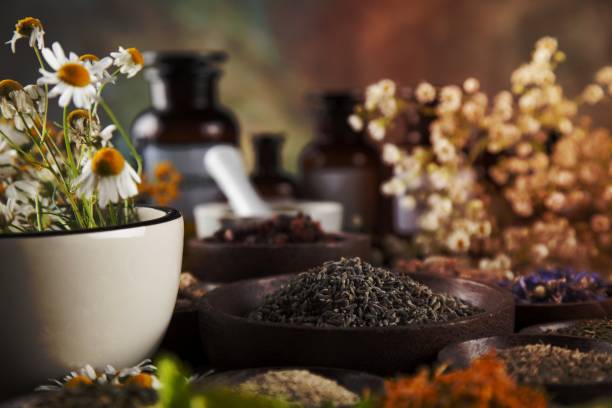Herbal Health Products and Supplements


Herbal health supplements and products have become a billion-dollar industry. A botanical or herb is a part or plant of a plant which is used by people to keep their health in check or treat certain conditions or ailments. A health supplement or herbal supplement (also called a botanical product) is a kind of nutritional supplement that has one or more herbs.
These supplements can have strong effects on your body. They're not endorsed by the Food and Drug Administration (FDA). They are found in tea bags, tea bags capsules and tablets as well as powders and liquids. Examples of typical herbal supplements and health products include black cohosh, echinacea, garlic Ginkgo, saw palmetto and St. John's wort.
Health improvement is the path to take
Herbal supplements and herbal products are intended to improve well-being or treat health issues. However, as mentioned earlier, they aren't regulated by the FDA. The FDA is a food regulator and herbal supplements are considered to be as food, not drugs. The label on a herbal supplement can say how it might help, but it cannot claim to be a treatment for an illness or disease. According to the FDA, "Dietary supplements are not intended to treat, diagnose or cure the symptoms of illnesses."
The National Institutes of Health provides an excellent guideline that explains how specific herbs and supplements can be utilized. These herbs are often employed for the following purposes:
American ginseng is taken to reduce stress, boost the immune system, improve digestion, and so on.
Chamomile is taken to improve the quality of sleep, ease anxiety, and ease digestive issues.
Cinnamon is a great spice to treat gastrointestinal issues, appetite loss, and diabetes.
There are numerous herbal products and supplements which claim to ease a variety of symptoms. But, consult your doctor prior to start taking any new medication. Do not exceed the dosage recommended and talk to your doctor if you have any questions.
Things to Take into Consideration
Are herbal supplements and health products secure?
Herbs may not be as safe as the ingredients found in over-the-counter (OTC) and prescription medicines due to their origins in the natural world. Actually, many prescription drugs contain chemical compounds that have been naturally found and purified. Even though herbal supplements and health supplements are usually advertised as organic, their components could cause issues for the human body. They may have strong effects on your body. These products can also have adverse health effects. These can be referred to as undesirable effects. Researchers have examined the risks and benefits of a variety of herbal supplements and health products. Other products and supplements must be studied more thoroughly.
Are herbal health supplements and supplements regulated by the U.S. Food and Drug Administration (FDA)?
FDA does not require evidence of the safety or effectiveness of the use of dietary supplements for the prevention, treatment, treatment, or cure of health issues. This is due to the fact that the FDA defines dietary supplements as food and not as drugs. Sananga benefits 's up to the manufacturer to ensure that an herbal health supplement or product is safe before it is sold.
If they're unsafe for example, if they cause serious adverse reactions or contain harmful substances If they cause serious adverse reactions or contain harmful ingredients, the FDA can remove them from the market.
How do I make use of herbal health products or supplements safely?
Speak with your doctor prior to you start taking any herbal supplements or other health products. If you do use an herbal health supplement or product follow the directions on the label to learn the dosage and how often you should take it. You should never overdose on the recommended amount. Consult your physician if you have any questions about the dosage recommended.
